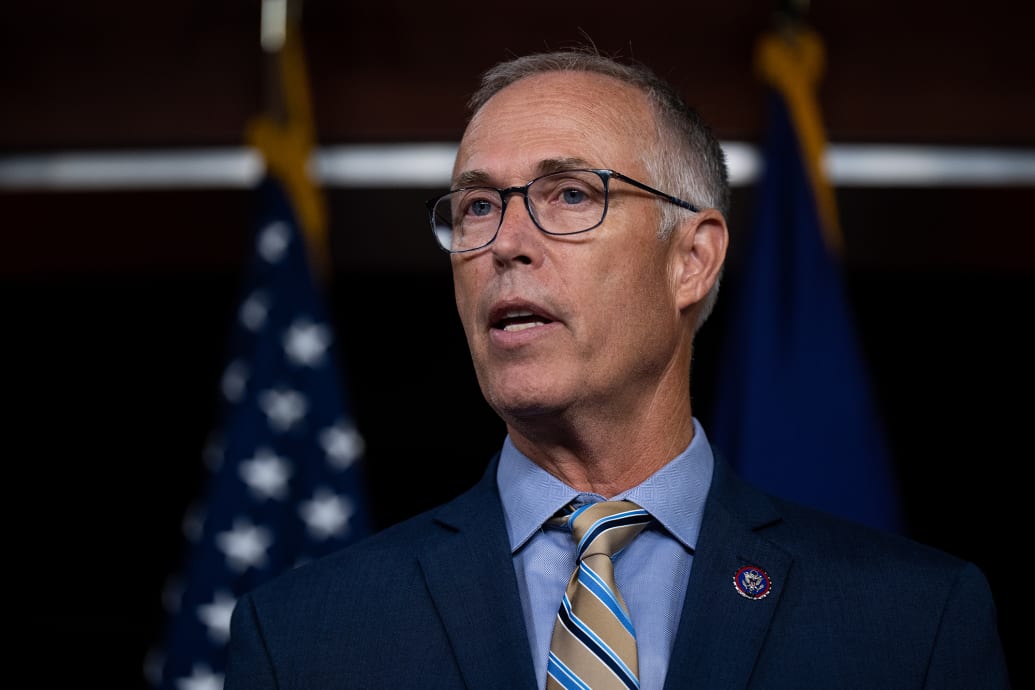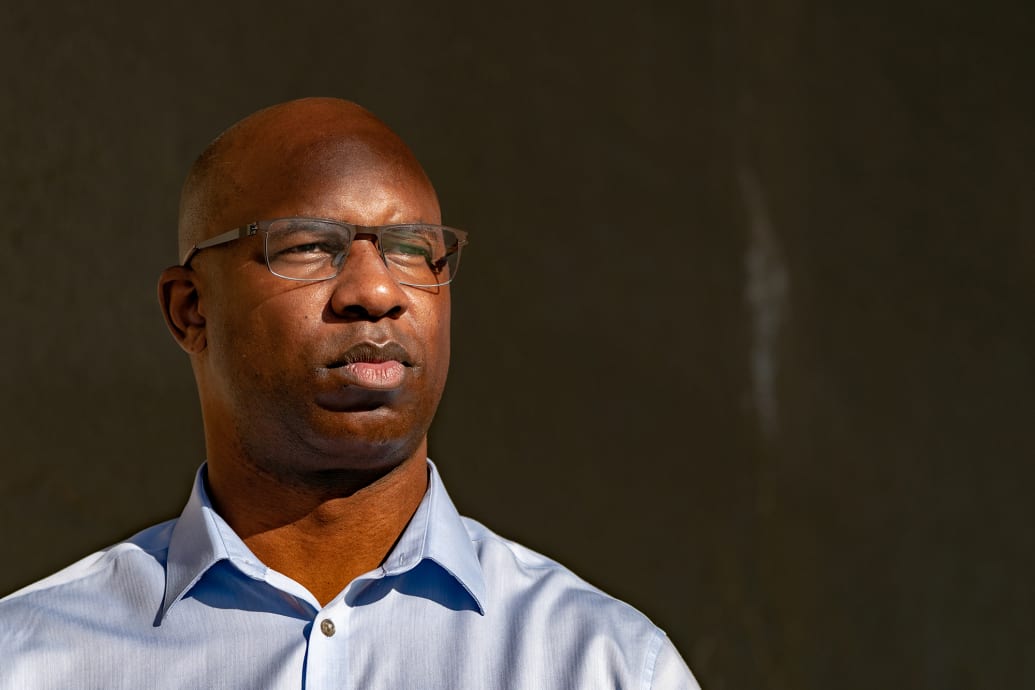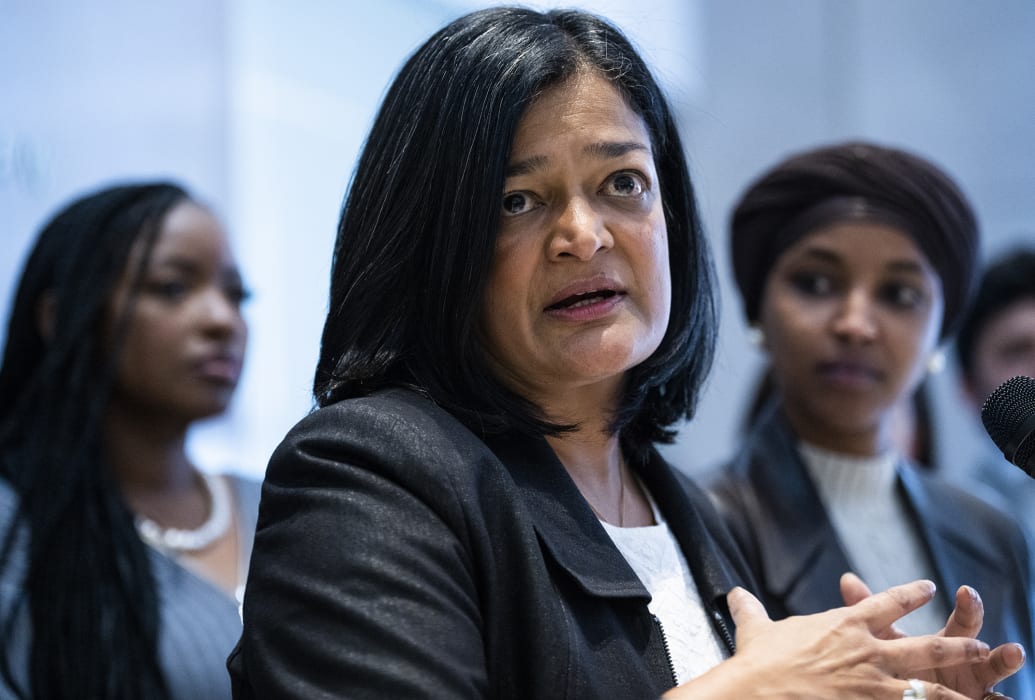Will Democratic Lawmakers Really Leave Elon Musk’s Twitter?
For nearly 15 years, Twitter and Congress have had a perfect symbiotic relationship. In the social media site, lawmakers found an unprecedented power to amplify themselves and their messages—which, in turn, forged Twitter into the country’s essential destination for news.
It took just over a month of Elon Musk running Twitter for that happy union to begin unraveling.
Since the Tesla CEO took over the platform in October, he has fired content moderators and safety specialists en masse, unbanned a number of accounts previously suspended for hateful or violent speech, and solicitously courted a number of right-wing figures on his massively followed account.
Many conservative lawmakers, who previously were harsh critics of Twitter, have welcomed those changes as a victory for “free speech.” But Democratic lawmakers have been alarmed to watch Twitter deteriorate into what they see as a rhetorical Superfund site. The platform is quickly becoming so radioactive that some are wondering whether they want to participate in it at all.
In the last week, The Daily Beast surveyed nearly a dozen Democratic lawmakers and staffers to ask if they were re-evaluating their relationships with the platform.
None are quite ready yet to make a clean break, but some said they are actively considering leaving, and many are beginning to imagine a digital communications strategy in a post-Twitter era. Already, 24 House Democrats have established verified accounts on Mastodon, the loosely-organized posting platform that has emerged as a Twitter alternative, according to the progressive group Demand Progress.
Two Democratic lawmakers who actually write tweets themselves—not just leave it to younger staff—and spend time on the platform both said they have considered leaving.
“It’s really disorienting,” said Rep. Jared Huffman (D-CA). “I don’t want to be codependent with an unhinged billionaire who is taking Twitter down with him as he implodes. But there’s also nothing else like Twitter. If you know how to use it and can tune out the junk and hate, it’s a uniquely powerful communication tool and a great source of information.”

Rep. Jared Huffman, D-Calif., speaks at the U.S. Capitol on July 28, 2022.
Bill Clark/CQ-Roll Call, Inc via Getty Images
“If this continues, I’ll probably have to leave the platform,” Huffman said, “but I’m still hoping someone, somehow, saves the day.”
“Some of the things I go on there and read, some of the comments—it’s just like, it’s just not a place of enjoyment,” said Rep. Jamaal Bowman (D-NY). “I’m very concerned. I have considered leaving. Not going to do it yet.”
Several Democrats said they have no plans to leave the platform. Perhaps unsurprisingly, they have some of the biggest followings and most distinct brands on the site.
Sen. Brian Schatz (D-HI), a go-to tweeter in the Senate Democratic caucus, told The Daily Beast he has no plans to leave the platform. Sen. Chris Murphy (D-CT), who routinely writes his own tweets to his 1.1 million followers, told Politico the same.
To some, abandoning a platform still used by millions of people would be tantamount to allowing extreme rhetoric to go unchecked. “It’d only help Elon Musk and the right wing for me to leave,” said Rep. Ruben Gallego (D-AZ), a prolific tweeter who uses his platform to pick fights with Republicans and, occasionally, fellow Democrats.

Rep. Jamaal Bowman poses outside a subway station on June 17, 2020 in the Bronx borough of New York City.
Jeenah Moon/Getty Images
When asked what might compel them to leave the platform, Democrats rarely had a specific answer—beyond the vibes getting simply too bad to endure.
“If it comes to a point where it’s solely just, like, Trump-fanboy insult Telegram channel, it makes no sense for me to be there,” Gallego said. “But I’m not going to quit in a form of protest, because I think that’s what they want us to do.”
Sen. Richard Blumenthal (D-CT), who has called for a Federal Trade Commission probe into Musk’s acquisition of the platform, is using the famous “I’ll know it when I see it” standard.
Twitter’s trajectory is “total chaos and misinformation,” Blumenthal said. “The question is, do I want to be a part of it?”
“I don’t want to be codependent with an unhinged billionaire who is taking Twitter down with him as he implodes. But there’s also nothing else like Twitter. If you know how to use it and can tune out the junk and hate, it’s a uniquely powerful communication tool and a great source of information.”
Many Twitter users have asked themselves the same question. Since Musk took control of the company, around 900,000 people have left the platform, according to an analysis by the firm BotSentinel. Many current users, meanwhile, have scaled back their presence or made a greater effort to communicate on Mastodon or other platforms.
But the dilemma is far more fraught for members of Congress than most users. Their decisions to stay, leave, or step back from Twitter could significantly influence the future of the platform for everyone else.
If newsmaking members with large followings leave or disengage from Twitter, others might be inspired to do the same. At the very least, those kinds of departures would continue to diminish Twitter as a destination for political developments and cause it to bleed more users.
If Twitter grows more toxic—as it did on Friday, with the reinstatement of notorious neo-Nazi Andrew Anglin—lawmakers could face pressure from activists and constituents to pull out from the platform. The reinstatement of Trump alone, one Democratic aide told The Daily Beast, sparked a group chat thread among lawmakers about moving to Mastodon.
Aaron Fritschner, the top communications aide to Rep. Don Beyer (D-VA), predicted a Fox News-type effect could develop with Twitter. In the past, Democratic lawmakers would appear on Fox, but they have largely stopped doing so to withhold legitimacy from the right-wing channel that broadcasts Tucker Carlson.
“It seems likely that the act of being on Twitter will become itself a politicized decision,” Fritschner said, with activist pressure campaigns potentially targeting members of Congress, like they have with Fox News advertisers. (His boss, Beyer, was the first member of Congress to get a verified Mastodon account.)
At the same time, lawmakers are also wrestling with the obligation to communicate on platforms that their constituents, and the broader public, use to get their information. Rep. Mark Pocan (D-WI) sent out a survey recently asking supporters if he should remain on Twitter. He told The Daily Beast that 87 percent said yes, with most feeling he needed to stay and offer “real facts.”
Among some aides and observers, the conventional wisdom is that politicians would be the last to leave a failing Twitter.
“Many members will stay on Twitter until the ship goes down, but they’re going to change what they do,” said Daniel Schuman, policy director of Demand Progress. “Most members are going to move to Twitter being solely press releases, going back to the bad old days of social media. It’s not going to be a conversation, it’ll be the bare minimum level of engagement.”
The fundamental political dynamics of the platform, shifting quickly under Musk’s tenure, could influence Democrats’ decisions. According to The Washington Post, top Democratic Twitter accounts saw substantial losses of followers in the first three weeks of the Musk era. Sens. Elizabeth Warren (D-MA), Bernie Sanders (I-VT), and Rep. Adam Schiff (D-CA) each lost some 100,000 followers in that time period. Meanwhile, Rep. Jim Jordan (R-OH) gained about 300,000.
But it’s unlikely that political Twitter will become a ghost town unless there is a more appealing alternative. Perhaps that alt-location could be Mastodon, but as currently constructed, the platform is proving too complex for widespread use among the public.
Rep. Sean Casten (D-IL), one of the few Democrats to have a verified account on Mastodon, was candid with The Daily Beast about its drawbacks. “I don’t have high hopes that Twitter’s gonna stick around,” he said. “I’m gonna miss it. I’m still trying to figure out how the heck Mastodon works.”

Congressional Progressive Caucus Chair Rep. Pramila Jayapal, D-Wash., speaks during a news conference with newly elected incoming members of the CPC at the AFL-CIO building in Washington, D.C., on Nov. 13, 2022.
Tom Williams/CQ-Roll Call, Inc via Getty Images
Ironically, it is conservatives who have crafted alternatives that most closely ape Twitter’s interface—namely, the Trump-associated platforms Gettr and Truth Social—but non-conservatives have yet to develop anything similar.
The chair of the Congressional Progressive Caucus, Rep. Pramila Jayapal (D-WA), told The Daily Beast she has made it a point to have staff researching Twitter alternatives. “It’s hard,” she said. “We’re…
Read More: Will Democratic Lawmakers Really Leave Elon Musk’s Twitter?

